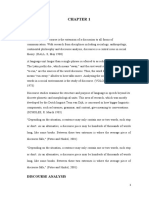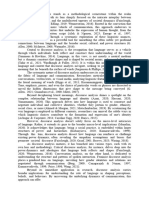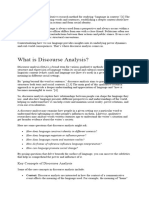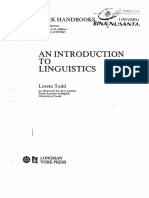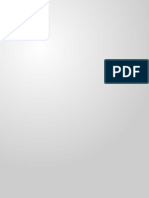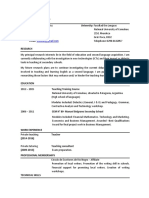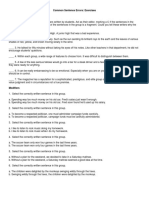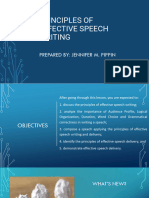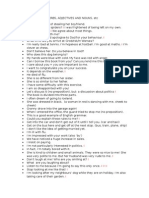0% found this document useful (0 votes)
12 views2 pagesUnit 1 DA Practice Exercise
Discourse Analysis examines language in context, focusing on how meaning is constructed and unified for users. It encompasses both spoken and written interaction, analyzing language as a tool for action and a reflection of social structures. The field includes various interdisciplinary approaches that address issues of power, inequality, and ideology within different social domains.
Uploaded by
alu0101431062Copyright
© © All Rights Reserved
We take content rights seriously. If you suspect this is your content, claim it here.
Available Formats
Download as DOC, PDF, TXT or read online on Scribd
0% found this document useful (0 votes)
12 views2 pagesUnit 1 DA Practice Exercise
Discourse Analysis examines language in context, focusing on how meaning is constructed and unified for users. It encompasses both spoken and written interaction, analyzing language as a tool for action and a reflection of social structures. The field includes various interdisciplinary approaches that address issues of power, inequality, and ideology within different social domains.
Uploaded by
alu0101431062Copyright
© © All Rights Reserved
We take content rights seriously. If you suspect this is your content, claim it here.
Available Formats
Download as DOC, PDF, TXT or read online on Scribd
/ 2








